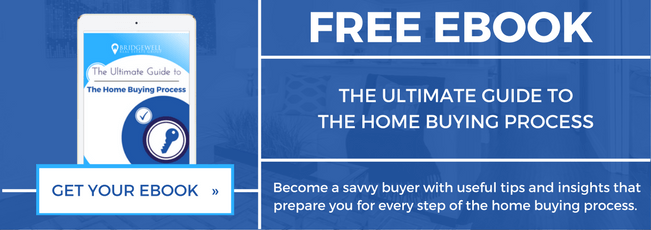Foreclosures and As Is Homes
What it Means, the Foreclosure Process, & Advice for Buyers & Sellers
If you’ve been looking at listings online, there’s no doubt that you’ve been the words “sold as is” in the remarks. Selling or buying the “as is” home, oftentimes a foreclosure, is a bit trickier than a regular resale home. So, today we will go through the basics of the foreclosures and as is homes, as well as the foreclosure bidding process (it’s much different than a resale), and some advice for sellers and buyers working with these types of homes.
What does “as is” mean?
When a home is being sold “as is”, it means that the sellers are not responsible for the history or condition of the property. Thus, they’re not making any representations or warranties (guarantees) about its condition. Foreclosures are always sold “as is”, and the reason for this is because the bank that is foreclosing in the owner of the property has no history of the condition of the property. So what could this mean for you? There may be an infestation of rats in the basement, the appliances may not be in working order when you move in, and if there’s any deficiencies the bank is certainly not going to fix it. If it’s not a foreclosure and the seller is still selling “as is”, then what you see is what you get.. and what you don’t see… well you get that too. Because of this, it’s extremely important to have an inspector come through to estimate the history, current condition, and future of the home.
We have dealt with foreclosures and as is properties that have been perfectly fine, and then we have deal with others where we get possession of the home and the tenant has ripped out all of the cabinets, flooring, and appliances. Just because the home is “as is” doesn’t necessarily mean there’s anything wrong with the property, but there is a risk as to the condition of it when you move in.

Warning! Things might sneak up on you in the “as is” home… so be prepared.
The Foreclosure Bidding Process
Foreclosures work a little bit differently than regular resale homes. First of all, just because you have an accepted offer doesn’t mean you actually have the house. See below for an example of a timetable of the foreclosure bidding process:
- An offer is negotiated and accepted.
- Once the offer is accepted and subjects are removed (anywhere between 7-14 days after acceptance), then both parties wait for the court date to be set. (typically 3-5 weeks later)
- Once the court date is set, the price of the current offer can be revealed to other potential buyers. Those buyers can make a decision on whether or not they would like to show up on the court date and offer a higher bid on the home, much like an auction.
- On the court date, whoever offers the highest bid wins the offer. All other presenting offers must come in subject free and with a bank draft in hand, otherwise their offer will be rejected by the court.
- Upon completion/possession, the buyer moves in to the foreclosure “as is”.
Thus, the foreclosure process is an auction that does not happen until the court date. Another interesting feature of the foreclosure process is that other buyers are well aware of the price that is offered – whereas in a typical resale home the prices are not disclosed. Again, the home is sold “as is”, which is a risk for potential buyers that are coming in subject free if they are unable to perform an inspection beforehand. Furthermore, the original buyer that had the accepted offer risks not actually being guaranteed the property just because he/she has an accepted offer – they can end up wasting months on a property that they get bid-out on.
Advice for buying an “as is” home
-
Go in with eagle eyes, and keep them WIDE open.
The bank (if a foreclosure) or the seller are selling “as is”, so remember what you see (and what you don’t see) are exactly what you get. Be prepared for everything.
-
Get a home inspection along with a report from a certified home inspector.
You’ll want to know what to expect moving forward, and how much money it’s going to cost you to fix up the home. They’ll prepare a report for you, which will help to anticipate how much liquid cash will suffice for any immediate repairs that need to be done. Also, make sure that you actually get a certified home inspector. (and no… a family friend that works as a contractor usually won’t suffice)
-
Make sure you have liquid cash on the side to cover yourself.
The state of the home is not necessarily guaranteed to be the same as when you last viewed it. Upon possession, the home could be wiped, and because there are no guarantees or warranties you are limited when it comes to being covered for damages. What’s more, is it can be difficult to obtain home insurance if there are major issues with the home that need to be fixed right away. Make sure you have a generous budget for any unexpected fixes.
-
A friendly reminder: your ability to sue the seller for deficiencies after the fact is very limited.
An “as is” home and/or foreclosures can be a risky investment. Again, you don’t have any warranties or guarantees to protect you, so one of the most important steps is to have a home inspection done so you fully understand exactly what you’re taking on.
Advice for selling an “as is” home
-
You still need to disclose information about the home that may make a difference in the buyer’s decision to purchase.
Just because you’re selling your home as is doesn’t mean that you’re off the hook when it comes to disclosures. If there’s an underground oil tank buried in your backyard, there’s been a major flood in your basement, or someone died in your home, then you’re going to have to disclose it.
-
Buyer’s typically understand the risk of an “as is” home, and many are looking for homes that are “turn key” or “move-in ready.”
A number of buyers may be a bit spooked by the as is home. Buying a home is a huge investment for them, and they’ll want to make sure that they’re investment is safe and sound. Many people are looking for a home that they can just move in to without having to be bothered with renovations. Your ideal buyer is probably a contractor or a person who flips homes for a living, they’re going to be looking for a fixer-upper.
—-
Buying or selling the “as is” home, like foreclosures, definitely comes with its challenges. For a riskier home than most resales, it’s important that you make sure the agent representing you is fully versed with in the ins and outs of this type of transaction. If you have any questions about foreclosures and as is homes gives us a call or text at 604-319-0200 or email at [email protected].



